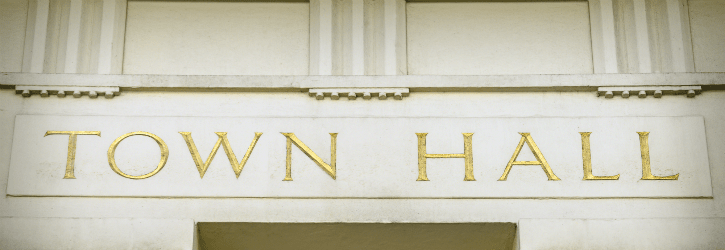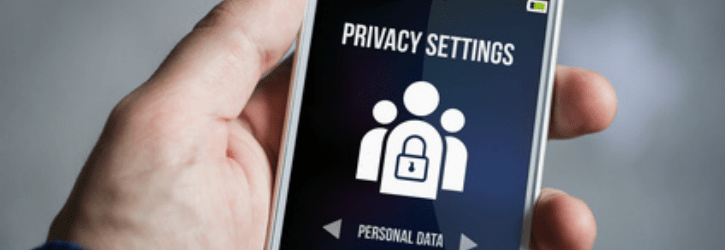Welcome To The Data Leak Lawyers Blog
We focus on the latest news surrounding data breaches, leaks and hacks plus daily internet security articles.
We focus on the latest news surrounding data breaches, leaks and hacks plus daily internet security articles.

Victims of student data breaches can be entitled to pursue claims for privacy compensation, and we can represent eligible claimants on a No Win, No Fee basis.
Your Lawyers, as leading data leak lawyers, understand the impact that a data breach can have on the victim. Representing thousands of clients, and having recovered over £1m in data damages for mostly individual clients, we really do understand how badly privacy breaches can affect the victims.
This is why we do what we do: we are here to help you now, and our legal team is happy to provide free, no-obligation advice about data and privacy matters now.

Victims affected by email attachment data breaches can be entitled to pursue a privacy compensation case on a No Win, No Fee basis now.
As a leading firm of data breach solicitors, we represent thousands of clients for cases and many of them have been affected by incidents like this. They are commonly caused by people receiving the wrong information, or where a mass email is sent out that has an attachment that should not be there.
If you have been affected by an event like this, you may be able to pursue a claim for data breach compensation for any breach of the GDPR that has taken place. Victims can be entitled to claim for any distress caused by the loss of control of their personal information, and we are here to help you now.

Victims of county council data breaches can be eligible to claim compensation for any distress caused by the loss of control of personal information, and eligible clients can benefit from No Win, No Fee legal representation.
Contrary to what many people believe, you do not need to have lost any money to claim. You can claim for just the distress caused, and a claim is separate from any fine issued by regulators. What you need is an expert team of lawyers on your side to help, and that is where we come in.
Your Lawyers, as leading Data Leak Lawyers, is here to help you now. You can benefit from our enviable experience in this niche and complex area of law as pioneers of privacy compensation claims, with over £1m in data breach damages already recovered for mostly individual clients.

You could be eligible to claim compensation for a ransomware attack, and our leading firm of privacy lawyers may be able to represent you now on a No Win, No Fee basis.
In short, if more could have been done to have protected your personal information, there may be a breach of the GDPR. If we can prove that a breach of the GDPR has taken place, you could be entitled to pursue a case for compensation and you could be eligible for a pay-out of thousands of pounds in damages.

Sharing confidential medical information without proper consent can be a breach of the law, and victims can be eligible to claim compensation for any harm caused to them.
We take on a lot of data breach compensation cases that involve medical information, given how private and sensitive this kind of data is. We know from our wealth of experience in this niche and complex area of law just how badly people can be affected.
You can access free, no-obligation advice by contacting our team here now.

It is no secret that we live in a world of the increasing risk of cyber threats affecting us all, and it is vital that victims whose personal information has been exposed or misused know what to do.
We are Your Lawyers – The Data Leak Lawyers – and we specialise in representing people for privacy compensation cases. We have been doing so for almost a decade, which means that our experience makes us a leading firm in this niche and complex area of law. Our proven track record of having recovered over £1m in damages for mostly singular cases, representing thousands of clients right now, means that our clients benefit from real experience. This can help us to achieve data breach compensation pay-outs that are better for our clients, with our average standing at just over £6,000 per settled case in damages alone.

When we begin a new job, we will typically receive information and training in respect of data protection and cybersecurity responsibilities, guiding us on how to act to ensure that private and personal information remains safe. All employers are obliged to educate their employees on how to comply with data protection law to avoid the possibility of employees breaching the GDPR.
However, a lacklustre or negligent approach to data protection can result in low awareness among employees, leading to data breaches. Whilst many may imagine that data breaches are often caused by computer faults or malicious cyberattacks, human error is often responsible, putting employees on the frontline of company data protection.
If a needless or even malicious employee breach compromised an individual’s information security, that person could be eligible to claim compensation for any harm caused by the breach. It is vital that data breach victims seek legal representation to fight for the justice they deserve.

News of the Funky Pigeon cybersecurity incident has recently been in the media following a cyberattack that has resulted in the platform shutting down services in response to the event.
It remains to be seen what data may have been exposed, although the company appears to be confident that no payment information has been affected. Despite this, there can still be a number of dangers for anyone affected, and people who have previously used the site will need to be vigilant.

As specialists in data compensation claims and consumer actions, we often encounter people who are worried about what to do after a data leak.
It is always concerning to learn that your information has been exposed, and it can cause victims to panic and feel helpless. In this difficult situation, it is important to remember that there are actions to be taken in such situations: both to protect you from further security risks and to hold those who caused the breach accountable for their actions.
When data is leaked, there is often no telling who may have gained access to the private information, but there is always the risk that criminals may seek to misuse it for their own – usually financial – gain. The data exposure itself cannot be undone in some circumstances, but there are further precautions that can be taken in the aftermath of a leak to mitigate the risks to your data and your bank accounts.

A recent report was published by the Information Commissioner’s Office (ICO) after the UK regulator looked into Home Office data protection matters.
These kinds of audits are key to ensuring that organisations are upholding the law and ensuring that people are protected at all times. As Leading Data Leak Lawyers, we know all too well how badly people can suffer when the law is broken, having been specialising in this niche area of law for almost a decade.
Fill out our quick call back form below and we'll contact you when you're ready to talk to us.